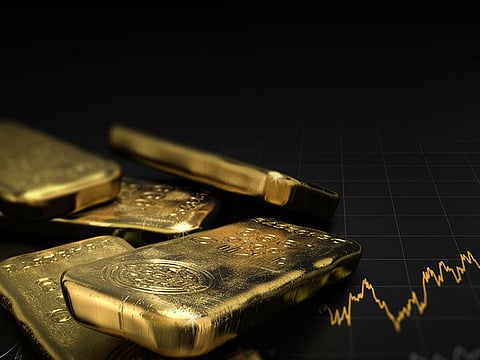Investing in commodities in 2021
During the uncertain times of COVID-19, experts offer insights into the markets

Safe-haven assets such as gold have traditionally performed well in uncertain times such as wars and economic turbulence. Gaurav Kashyap, Head of Futures at EGM Futures DMCC, a subsidiary of Equiti Group, says that people often decide to mitigate the risk of losses during times of unpredictability in the commodities market. “Investors look to diversify their risk, especially during market uncertainty. Traders seek investments that save the value of the cash. The rationale behind this is because during uncertain times, the most expected action from central banks is to have an easing monetary policy, meaning depreciating the value of its currencies and that will be in favour of assets that being treated as safe-haven and value saver such as gold,” he says.
Kashyap also says that gold is particularly attractive in times of low inflation. “Another positive factor for gold prices are inflation rates and interest rate levels. What you were able to buy with one-ounce a long time ago is still worth one ounce these days. Both rates play a big part in the price of gold during economic recession. Central banks tend to lower interest rates in which it will depreciate the value of its currency, making gold more appealing.”
Kashyap believes that the growing number of vaccinated individuals has had a positive impact on commodity prices, particularly oil. “Since the vaccination rate is rising in many countries around the world, commodity prices have improved significantly, especially oil prices. Covid vaccines has been a game-changer for oil because it has sped-up the demand recovery and drove oil prices higher. It allowed travel, transport, and other business activities to get back to normal because consumer spending rose, and economic cycle got better. The vaccine will improve the food, beverage, tourism sectors around the world as lockdowns gradually ease and more people are vaccinated.”
He says that technology is also an area that has seen growth, particularly as more people work from home. “Another trend is that technology sectors will keep dominating the market as the best investment opportunities due to the new shift of business modules regarding working from home policy,” he says. “A Microsoft survey found that 74 per cent of the companies who plan to permanently shift some of their employees to remote work.”
An alternative to the dollar
Stavros Tousios, Head of Investment Research, Orbex, says that commodities such as gold are often a popular alternative to currencies in times of uncertainty. “Broadly speaking, commodities are a good place to avoid any kind of uncertainty as they offer an alternative option to the dollar.
“During uncertain times, demand for commodities like gold depends on two factors; supply and inflation expectations.
“The outbreak of covid-19 last February raised concerns around supply chains and businesses having enough working capital to find alternative suppliers. Counterintuitively, we saw an initial reaction in safe haven assets like the dollar and silver, and especially gold. Then, in March, markets crashed because of a liquidity crunch.”
Tousios says that inflation also had an impact on the commodities market. “All the stimulus spending created concerns over potential inflation, which naturally would drag on dollar strength and provide grounds for a solid take-off in gold. And it did. Even though, somewhat ironically, we’ve been getting to the end of the covid-19 recession for a while now with the vaccine rollouts,” he says.
According to Tousios, the commodities market is linked to the health of the economies and that investors should be aware of fluctuations in markets. Historically speaking, commodities have been largely affected by global economic activity. As economies reopen, a sudden need for raw materials and petroleum products might affect gold, silver, and oil prices. However, when the economy starts normalising again, appetite for raw materials could dwindle, and investors will want to start looking for more risk in speculative oil.”
He says that monetary policies such as the U.S. stimulus package could also cause fluctuations in commodities prices. “Given the latest plans of stimulus from the U.S., there is increasing concern over inflation now, which means that the dollar could weaken, and gold prices could strengthen. With monetary policy and the usual business cycle playing their hefty part, investors must keep a sharp eye on all those factors to demystify the markets. Only then can they plan their trades in advance while keeping emotions out of the equation.”
A diverse market
Kaia Parv, Head of Investment Research, FXPRIMUS, says that the commodities market is extremely diverse. “Commodities as a group are extremely diverse, with each sub-group exhibiting different characteristics. In general, demand and supply are still driving the prices but additional variables, such as economic cycle, politics, climate and social factors are also to be considered.
“However, commodities as a group have become highly financialised – meaning the derivatives instruments on commodities have grown enormously in size and now are the second most traded derivative category. This has had an impact on correlations with other asset classes and also on price elasticity of commodities.
She says that investors should research the market and ensure they use reliable and safe platforms before buying commodities. “Investors who are interested in commodities markets should find the instruments, for instance ETF-s, that have deep liquidity and can be easily and safely traded. Independent research is a no-brainer. However, one should also think about risk management by implement stop-loss orders to minimise losses, should the price go in opposite direction. I would also suggest new investors avoiding leverage, at least initially.”



